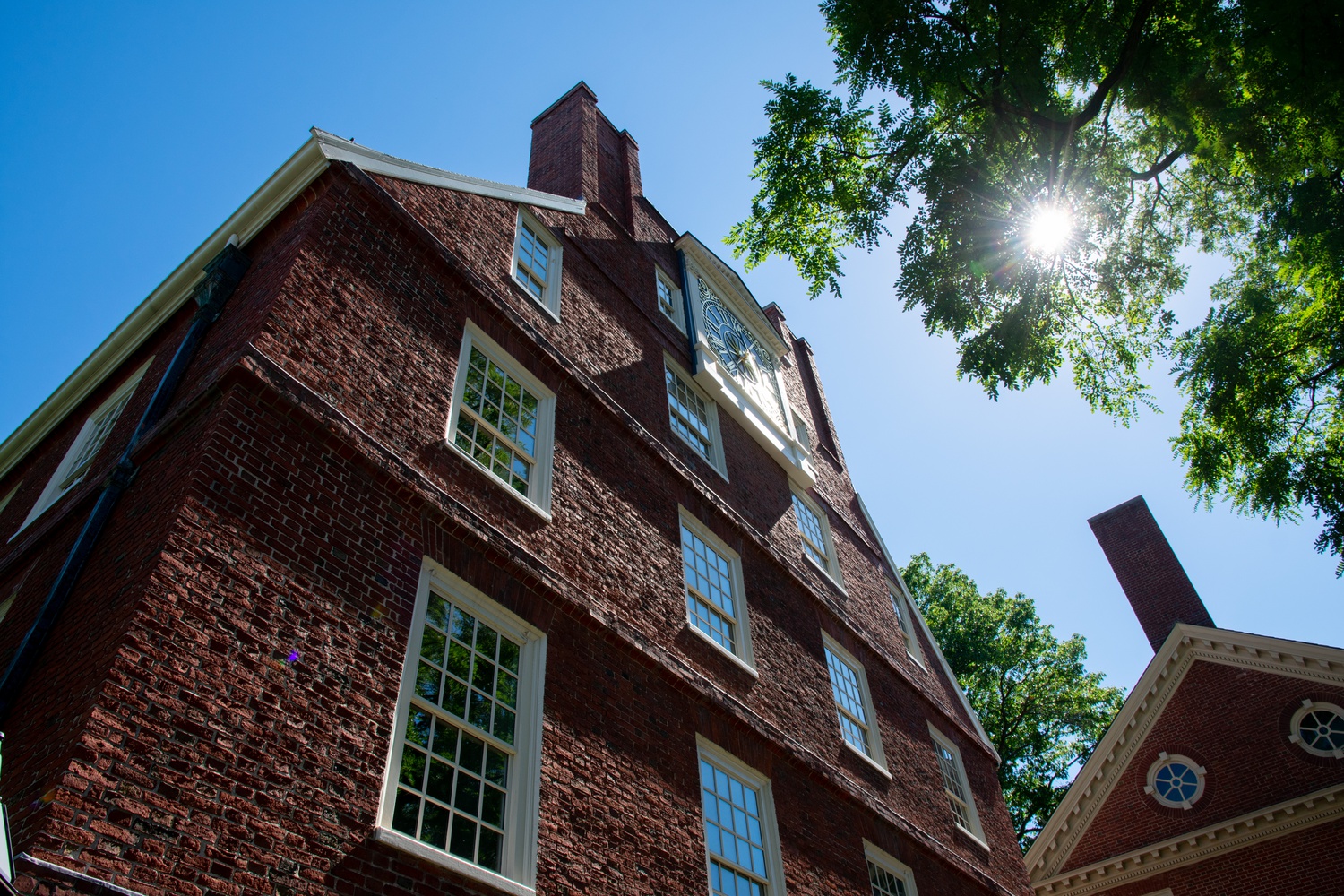
News
Cambridge Businesses Brace For Supplier Price Increases From Tariffs

News
As Wu Seeks Reelection, Residents and Officials Praise Her First Term As Mayor of Boston

News
Cambridge No Longer in a ‘Critical’ Drought, City Water Board Announces

News
Climate Accountability Group Calls On Harvard To Cut Ties with Lobbying Firm Connected To Tesla

News
In Court Filing, Trump Administration Blasts AAUP Lawsuit Against Immigration Orders
From CAFH Leadership: Harvard Must Not Submit to a Hostile Takeover
On April 11, 2025, officials of three federal departments presented Harvard University with a list of demands for how the University must run its internal affairs if it is to remain eligible for federal research support.
The demands include changes in how the University is governed; who leads it; whom it admits, hires, and promotes; and how it handles student life. Most disturbingly, the letter requires the University to cede oversight of these reforms to government-appointed bureaucrats and approved external “auditors” in what would constitute unprecedented governmental interference in the University’s internal affairs. We therefore support University President Alan M. Garber ’76 and the Harvard Corporation in their decision to reject the government’s terms.
If the University were to accede to the Trump administration’s demands, it would be empowering bureaucrats in Washington to impose their own viewpoints on universities for generations to come.
Take, for instance, the administration’s Orwellian demand that the University “commission an external party, which shall satisfy the federal government as to its competence and good faith, to audit the student body, faculty, staff, and leadership for viewpoint diversity, such that each department, field, or teaching unit must be individually viewpoint diverse.”
It is difficult to escape the conclusion that the government seeks to impose by fiat beliefs that cannot compete on their own merits in the marketplace of ideas.
The impulse that animates the Department of Education’s letter is profoundly authoritarian. This is illustrated most clearly in the demand that the University not admit students “hostile to the American values and institutions inscribed in the U.S. Constitution and Declaration of Independence.” Though this University has long sought to admit only those of the highest character and intellectual caliber, to demand that all admitted students share the same reverence for America’s founding documents in fact violates the spirit of those documents. After all, our Constitution was itself birthed out of vigorous debate and has been criticized by generations of patriots. The current administration appears to believe that this process that has served us so well for 250 years should now cease forever.
Similarly authoritarian, we fear, is the intent behind the administration’s demand that the University ban “any student group or club that endorses or promotes criminal activity.” Though we all agree that students should abide by the law, the administration’s letter gives us little reason to believe that its conception of lawbreaking will not be construed so broadly as to include legitimate, peaceful dissent. With the narrowest of exceptions (like incitement of imminent lawless activity), no opinion should be outlawed in a university.
But in addition to constituting a stunning example of governmental overreach, the Department of Education letter is a poorly-reasoned document that cannot serve as a blueprint for the running of this or any university. Will the government-approved commission on viewpoint diversity that the Trump administration wants to erect require that vaccine opponents be appointed to the School of Public Health? Imposing “viewpoints” on universities means forcing them to acknowledge the relevance and legitimacy of ideas which may have been intellectually discredited or judged not worthy of finite time and resources.
Government bureaucrats should not be making these decisions.
The Trump administration’s ultimatum is filled with other decrees that are dangerously vague (such as “reducing the power held by faculty… more committed to activism than scholarship”) or downright dictatorial (such as empowering faculty “committed to the changes indicated in this letter”). They call for comprehensive audits for intellectual content, mandatory disclosure of sensitive information, and the encouragement of snitching to the government which would poison the atmosphere of free inquiry and independent evaluation of ideas on which intellectual life depends.
The government appears to be oblivious to the fact that these demands, ostensibly aimed at promoting scholarly diversity and open inquiry, will in fact strangle them. The government has a legitimate interest in protecting students from harassment and discrimination, but not in micromanaging the internal operation of the University, and certainly not in micromanaging what its members think.
We applaud Garber and the Corporation for resisting these illegitimate demands and for upholding the values that have made American universities the best in the world.
Steven A. Pinker is the Johnstone Family Professor of Psychology. Tarek Masoud is the Ford Foundation Professor of Democracy and Governance at Harvard University's John F. Kennedy School of Government. They write on behalf of the executive committee of the Council on Academic Freedom at Harvard.
Want to keep up with breaking news? Subscribe to our email newsletter.
Related Articles
Most Read
- Experts Say Harvard Has a Strong Case in Legal Battle Against Trump
- College Dean Rakesh Khurana Declines To Say How Harvard Will Respond to Homeland Security Demands
- Amid Feud With Trump, Harvard Pushed Back Release of Antisemitism, Anti-Muslim Bias Task Force Reports From Early April
- Trump’s Harvard Simply Isn’t Real
- Harvard Asks Judge to Expedite Lawsuit Against Trump Admin, Declines to Request Emergency Injunction

